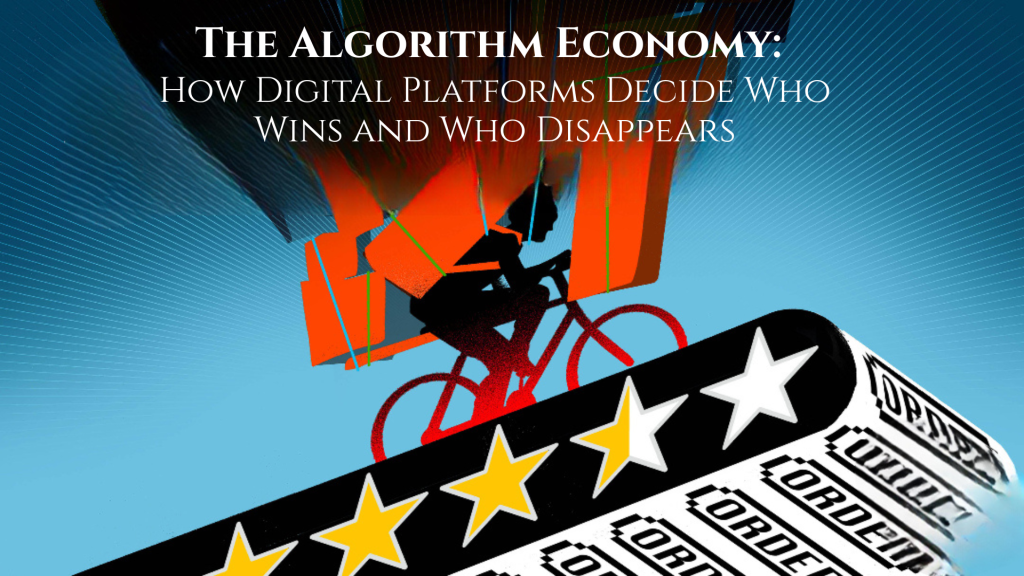The Rise of the Algorithmic Marketplace –
In today’s digital age, algorithms are the invisible engines running our online economy. They determine what we see, what we buy, and even what we believe. Platforms like Google, YouTube, Instagram, and TikTok use complex algorithms to filter massive amounts of content and decide which creators, products, or businesses gain visibility. This silent decision-making process has given rise to what many experts call the “Algorithm Economy” — a system where mathematical formulas dictate market success. What was once a space of open opportunity has evolved into a competitive environment ruled by unseen digital logic.
Key points:
- Algorithms determine visibility, engagement, and ultimately sales in digital markets.
- Most businesses now depend on platform recommendations rather than direct consumer reach.
- A single algorithm update can destroy years of growth for brands or creators.
- Success online often depends less on quality and more on algorithmic compatibility.
How Algorithms Shape Consumer Behavior –
Every digital interaction — from a search query to a product click — is tracked and analyzed. Algorithms learn from this data to personalize experiences and predict what users want next. While this personalization seems convenient, it subtly shapes consumer decisions and purchasing behavior. Instead of discovering products organically, users are often directed toward what the platform wants them to see. This transforms the consumer from a decision-maker into a data point, reinforcing patterns that benefit the platform’s profitability more than user choice.
Key points:
- Personalized feeds and recommendations create “digital echo chambers.”
- Consumer choices are influenced by predictive analytics and behavioral targeting.
- Platforms prioritize content and products that increase engagement or ad revenue.
- True market competition is limited by algorithmic favoritism.
Winners, Losers, and the Cost of Visibility –
In the algorithm economy, visibility equals survival. Businesses invest heavily in SEO, influencer marketing, and ad campaigns to align with platform algorithms. Yet the rules are constantly shifting. Small brands and independent creators often lose out because they lack the resources to adapt quickly or pay for promoted reach. Meanwhile, large corporations thrive by leveraging data science and ad budgets to stay on top. The result is an uneven digital marketplace where algorithmic bias deepens economic inequality.
Key points:
- Algorithm changes can instantly demote brands, creators, or entire industries.
- Paid promotions give large corporations an unfair visibility advantage.
- Smaller businesses face a constant battle to remain discoverable.
- The digital market increasingly mirrors real-world inequality.
The Transparency Problem: Who Controls the Code?
One of the biggest issues with the algorithm economy is its lack of transparency. The formulas that control visibility and engagement are closely guarded trade secrets. Users, businesses, and even regulators have little understanding of how these systems operate. This secrecy creates a power imbalance — platforms become unaccountable authorities deciding who gets attention and who disappears. Without transparency, it’s nearly impossible to ensure fairness, neutrality, or ethical governance in digital spaces.
Key points:
- Algorithms are proprietary, making it hard to audit or challenge their outcomes.
- Lack of transparency allows hidden bias, censorship, and manipulation.
- Governments struggle to regulate platforms without access to algorithmic data.
- Users and businesses operate in a system they can’t fully understand or control.
The Path Toward an Ethical Algorithm Economy –
As the algorithm economy continues to expand, global discussions about algorithmic ethics and accountability are gaining urgency. Some governments are pushing for algorithm transparency laws, while tech activists call for “explainable AI” — systems that can justify their decisions. Businesses, too, are beginning to demand fairness and predictability in digital marketplaces. The future of the online economy depends on balancing innovation with accountability, ensuring that algorithms serve society rather than exploit it.
Key points:
- Ethical AI and transparency laws are essential for fair digital competition.
- Explainable AI can help users understand why certain results or ads appear.
- Platforms must balance personalization with diversity and fairness.
- Collaboration between governments, tech firms, and consumers is crucial for reform.
Conclusion –
The algorithm economy has quietly become one of the most powerful forces shaping modern life. It decides who gains fame, who earns profit, and who vanishes into digital obscurity. While algorithms offer efficiency and personalization, they also concentrate power in the hands of a few corporations and data scientists. The future demands not only smarter technology but fairer algorithms — systems designed with transparency, ethics, and equality in mind. Only then can the digital marketplace truly serve its global community, not just those who understand its code.

